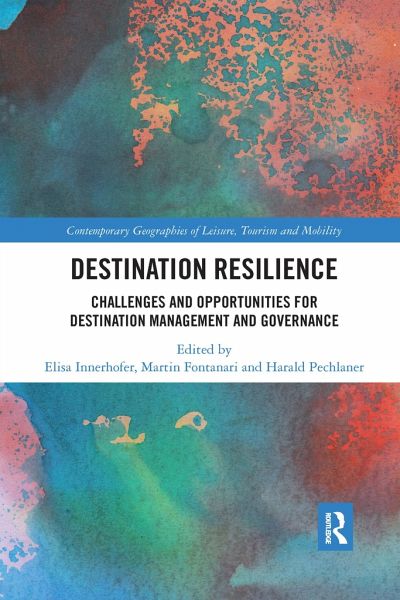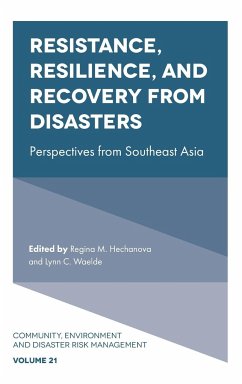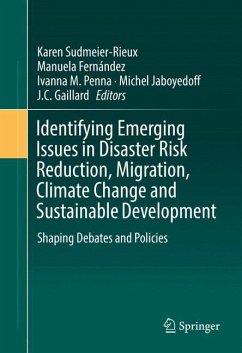
Destination Resilience
Challenges and Opportunities for Destination Management and Governance
Herausgegeben: Innerhofer, Elisa; Fontanari, Martin; Pechlaner, Harald

PAYBACK Punkte
20 °P sammeln!
This book calls for rethinking the meaning of sustainable development in tourism and explores how sustainability and resilience could be integrated. It argues that these concepts should be seen as interwoven processes, rather than alternative approaches. Resilience should be understood as a fundamental part of sustainable tourism thinking for destination systems. This can be achieved by calling for better governance in implementation and management. With insights from leading experts, chapters focus on resilient destinations from this governance perspective, in which tourism resilience is cont...
This book calls for rethinking the meaning of sustainable development in tourism and explores how sustainability and resilience could be integrated. It argues that these concepts should be seen as interwoven processes, rather than alternative approaches. Resilience should be understood as a fundamental part of sustainable tourism thinking for destination systems. This can be achieved by calling for better governance in implementation and management. With insights from leading experts, chapters focus on resilient destinations from this governance perspective, in which tourism resilience is contextualized as an integral part of pathway creation in the process of moving towards sustainable tourism. The chapters represent a range of theoretical and empirical approaches with a wide international scope to demonstrate how governance is the key issue in sustainable tourism development.
This book will appeal to a wide range of research disciplines and students whose modules focus on the relationship between tourism with respect to sustainability planning, governance, environment, and hazards and disasters.
This book will appeal to a wide range of research disciplines and students whose modules focus on the relationship between tourism with respect to sustainability planning, governance, environment, and hazards and disasters.














